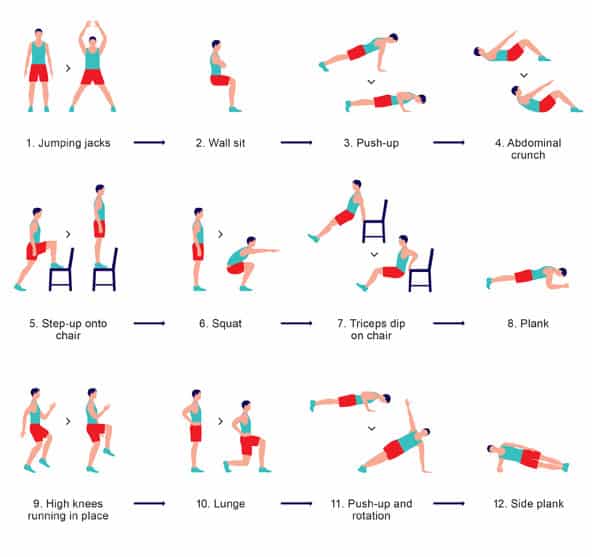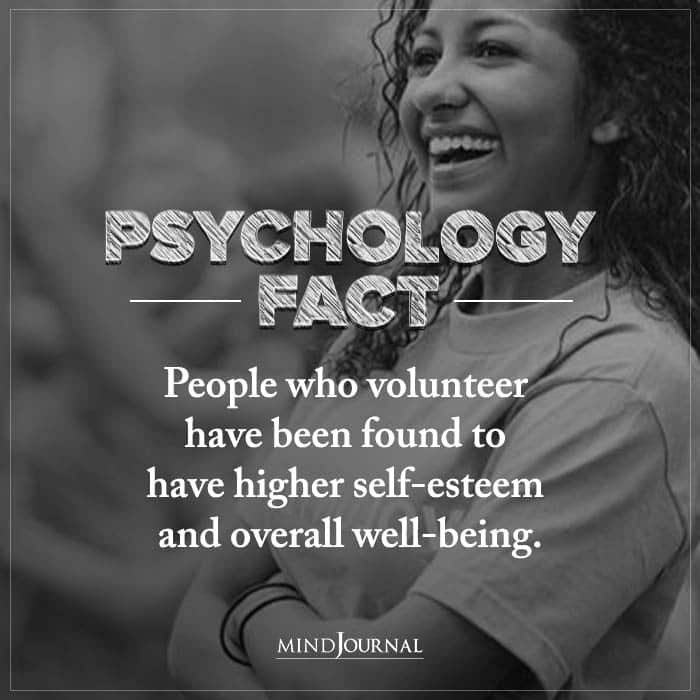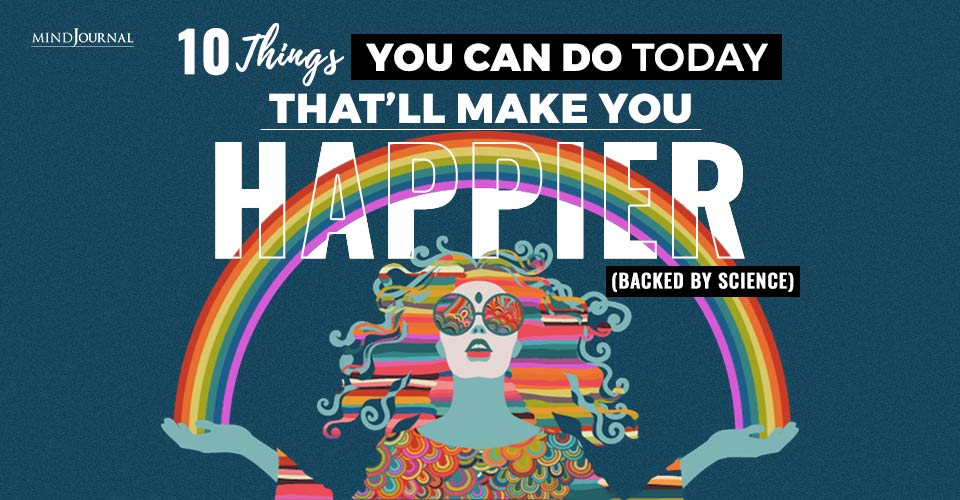We all want to be happy and strive for it, heart and soul. Don’t you? We at Mind Journal are committed to helping people with every information they need for happiness and better living. So, this blog shares ten simple things that make you happier.
These life hacks are simple, and don’t cost you a penny! You just need to invest a few minutes daily. And you will see significant improvement in your happiness levels.
Here are 10 best science-backed things that will surely make you happier
1. Exercise more – 7 minutes might be enough
“I don’t have time to exercise, I have a hectic schedule!” Sounds familiar? Most people have no time for exercise but can end weekends binge-watching FRIENDS on Netflix. Sure, exercise needs a lot of motivation. But, what if you just need to invest 7 minutes. Yes, you read it right! 7 minutes is enough!
A new study published by the American College of Sports Medicine’s Health & Fitness Journal showed that a 7 minutes high-intensity workout involving 12 exercises (see image below) offers the same fitness benefits of prolonged endurance training. To do this you need to deploy only body weight, a chair and a wall.
A new study 7-minute workout can easily fit into your busy schedule. Isn’t it?

Shawn Achor’s book, The Happiness Advantage, mentioned a study involving three groups of people with depression. Each of the groups was treated with either exercise, medication or a combination of two. Researchers found that participants in all groups showed improvement in their happiness levels after the end of the experiment.
When tested six months later to assess their relapse rate. 38% of the people treated only with medication slipped back into depression, while those in the combination group showed a 31 per cent relapse rate. Surprisingly, the exercise group had a relapse rate of only 9%.
Also read 14 Surprising Brain Benefits of Running That You Should Know
According to a study in the Journal of Health Psychology, 6 x 40 mins exercise makes you feel better about your body even when there is no change in body weight and shape. So, exercise is worth it! Not just to fight depression but to boost your brainpower, improve body image, happiness and well-being. There are plenty of studies to validate the same.

2. Try for a short commute to work
The distance between your workplace and home can have a great impact on your happiness. Commuting twice a day for 5 days a week leaves you mentally and physically tired. This builds up over time making less and less happy. Harvard psychologist Daniel Gilbert said “Driving in traffic is a different kind of hell every day.
Two Swiss economists studied how commuting affects happiness and found that activities that make us happy like sex or a bigger house or a better job or partying cannot make up for the misery created by a long commute.
Also read 9 Ways To Develop More Conscientious Interactions At Workplace
3. Breathe fresh air – 13.9°C is the happy temperature
Going out often is the key to happiness and positive psychology according to Shawn Achor, author of The Happiness Advantage. You can enjoy a positive mood just by spending 20 minutes outside in good weather. What’s more, it will boost your working memory. Don’t you think it is easy to fit 20 minutes into your so-called busy schedule?
As per the University of Sussex study “Being outdoors, near the sea, on a warm, sunny weekend afternoon is the perfect spot for most. In fact, participants were found to be substantially happier outdoors in all-natural environments than they were in urban environments.”
A 2011 research published by the American Meteorological Society showed that temperature has more effect on the happiness of an individual than wind and other factors. The study found that happiness maximises at 13.9°C. Keep this in mind the next time you go out for a walk. You can ensure that if you stay tuned with the weather forecast.
4. Sleep more to keep negative emotions away
Some studies showed that sleeping enough is linked to happiness and positivity. According to the book titled, “NurtureShock: New Thinking About Children” sleep affects positive thinking. Lack of sleep hits the hippocampus (the brain region that plays a key role in learning and memory) harder than the amygdala (part of the brain where emotions are given meaning and emotional memories are formed).
Amygdala mainly processes negative stimuli, while the hippocampus mainly processes neutral or positive memories. Therefore, people who are sleep deprived have trouble recalling pleasant memories, but can very well remember negative or unpleasant memories.

In one study researchers asked sleep-deprived college students to memorise the list of words with positive, negative and neutral connotations. Surprisingly, the participants remembered 81 of the negative words like cancer and only 31% of the positive or neutral words like basket or sunshine.
A 2011 study by Ninad Gujar and his colleagues tested 36, male and female participants of average age 21 on a face-processing task. They were first tested at 12 p.m and again at 5 pm. Half the participants were given a 90-minute napping opportunity, while the rest continued their day as usual. To test involves looking at a computer screen showing a male face-pulling angry, sad, and happy expressions at various intensities. Participants were asked to rate each facial expression for intensity on a scale from 1 (definitely neutral) to 4 (mostly happy/sad etc).
Also read The 3 Most Popular Sleeping Positions And Their Health Impacts
Participants who didn’t receive napping opportunities and stayed awake through the afternoon demonstrated heightened sensitivity to fearful and angry facial expressions as compared to those who had a 90-minute nap. Nap group also showed more sensitivity to happy expressions. While the no-nap group reported less positive mood, the nap group reported a decrease in a positive mood.
So, if recently any of your friends commented that “you are being negative”, you may need to improve your sleep duration. And if you are highly sensitive to negative emotions like anger or fear, then sleep could be the culprit!
Another study by Ohio State University, involving telephone customer service representatives showed that employees who started their day in a bad mood were highly likely to get into negative spirals, which affected their work performance and productivity. So, if you get up on the wrong side of the bed, your work will show it.

5. Never miss friends and family time
Not giving enough time to friends and folks is one of the main regrets of people on deathbeds. Harvard happiness expert Daniel Gilbert says we are happier when we have friends and family. Other sources of happiness like partying or travelling are ways of adding more friends to our lives. Even if you are introverted, social time is highly valuable for your happiness.
Robert Waldinger conducted one of the longest studies ever to find what actually makes us happy. He and his team studied lives.
“The surprising finding is that our relationships and how happy we are in our relationships have a powerful influence on our health,” said Robert Waldinger. “Good relationships keep us happier and healthier”, he said.
Your relationships are worth more than $100,000, according to a study published in the Journal of Socio-Economics. It used British Household Panel Survey and found that more time spent in social involvement is equivalent to an extra £85,000 per year in terms of life satisfaction. The same compared to actual changes in the annual income by hundreds of thousands of dollars showed lesser happiness. Money doesn’t buy happiness is indeed true.
In the article, “What makes us happy?” Joshua Wolf Shenk mentioned that 93 per cent of the men doing well at the age of 65 had been close to a brother or sister when younger. Besides relationships with siblings how we help others also help us live long and happy life, according to the book The Longevity Project by Howard S. Friedman
What about you? Do you have friends and folks to count on? Do you feel valued? If not, then focus on nurturing good relationships. Also, remember social network size doesn’t matter.
Also read How To Know If It’s Time to Let Go of Toxic Friends or Family: 15 Questions To Ask
6. Plan a trip

Simply planning a vacation, even if you cannot take one, can make you happier, according to a study published in the Applied Research in Quality of Life. The planning stage of vacation gives people a sense of anticipation that boosts happiness. However, after vacation, the happiness levels dropped to baseline levels in most participants.
Shawn Achor book mentions that the endorphins levels increased by 27% in people who thought of watching their favourite movies. So, if travelling is not your cup o tea right now, engaging in your hobby and things that you like is enough to boost your happiness.
Also read 10 Reasons Why You Should Travel Alone At Least Once in Your Life
7. Always keep smiling

Smile more and it will alleviate your pain. If you can back it up with positive thoughts you can enjoy greater benefits. But, a fake smile will only do more harm than good, according to a study led by Michigan State University. In this study, customer-service workers who fake smiles throughout the day showed worse mood, withdrawal from work and poor productivity. Those who smiled out of positive thoughts such as good family time or a happy weekend or vacation demonstrated an improved mood.

Do you know real smiles can increase our attention? Smiling can improve our performance on cognitive tasks? What’s more? Smiling reduces the pain we feel in distressing situations. Some psychologists say that forcing a smile even when we don’t feel like it will change the mood helps in lifting our mood. This is known as embodied cognition.
Also read The Best Self-Care Ideas Based On Your Zodiac Sign
8. Be the volunteer – 100 hours can do wonders for your life
Nothing can beat your happiness when you help people in distress. So help others to make yourself happier. Shawn Achor’s book mentioned research that interviewed more than 150 people about their buying behaviour. Participants reported more pleasure from concerts and group dinners out than material possessions like expensive watches or television. “Prosocial spending” which is spending money on other people raises your happiness to the next level. This is also validated by another study published in the Journal of Happiness Studies.
What about spending time with other people? How does that affect happiness?
What is the optimal time for volunteering to reap the happiness advantage? How does that affect happiness? According to a Germany based study of volunteering that includes data collected after the fall of the Berlin Wall but before the German reunion, the subjective well-being of the volunteers improved supporting the hypothesis that volunteering is rewarding in terms of higher life satisfaction.

What is the optimal time you need to invest in volunteering to feel happier? Studies say, 100 hours per year (or two hours per week) is all you need to invest to help people and enrich your life.
” … we scientists have found that doing a kindness produces the single most reliable momentary increase in well-being of any exercise we have tested,” said Martin Seligman, author of “Flourish: A Visionary New Understanding of Happiness and Well-being”
9. Meditate – Buddha’s way of happiness

Meditation is not just to calm yourself down. This is the world’s most excellent technique to become happier long-term. Meditation improves focus, clarity and attentiveness.
A research team from Massachusetts General Hospital assessed the impact of meditation on 16 people. The team performed brain scans before and after the 8-week mindfulness meditation program. Participants’ brains showed growth in areas of the brain responsible for compassion and self-awareness as a result of meditation. Brain scans showed shrinkage in brain regions associated with stress.
Also read 22 Tips To Keep Your Brain Sharp and Young At Any Age
According to Shawn Achor’s book, meditation makes a person experience feelings of calm, empathy, contentment and gain high self-awareness. Numerous scientific studies proved that daily meditation wires the brain to raise levels of happiness.

10. Practice gratitude – You will stop complaining
Such a simple exercise! Isn’t it? But, a little tough to practise. After all, we are all wired to compare our lives with others, ignoring what God gifted us.
You can practise gratitude by writing three good things that happen each day. Prayer is another simple strategy. When praying to the Lord, say thanks for all the great good things you have in your life. You can say thanks to people or friends or your parents for being with you during thick or thin.
In an experiment, participants who maintained a gratitude list each day showed significant improvement in mood and sense of well-being as compared to participants who did not practise gratitude. The study results conclude that consciously counting your blessings may have emotional and interpersonal benefits.
Also read 7 Science-Backed Benefits Of Journaling
A study published in the Journal of Happiness studies showed that writing three letters of gratitude over a 3 week period increased participants’ happiness and life satisfaction. The participants also exhibited fewer depressive symptoms.

Bonus Tip: Growing old will make you happier
Scientists say ageing people are happier because they tend to seek situations that lift their mood like family or friends get-togethers. Also, they have more ability than the youngsters to let go of grudges, losses and disappointments and move towards greater wellbeing. Older adults have a more positive outlook towards life than younger adults. So, age gracefully!
Are you ready to try them and become happier? Try them and let us know your experience in the comments below.
Please share this article with anyone who you may think will find it valuable and helpful.










Leave a Reply